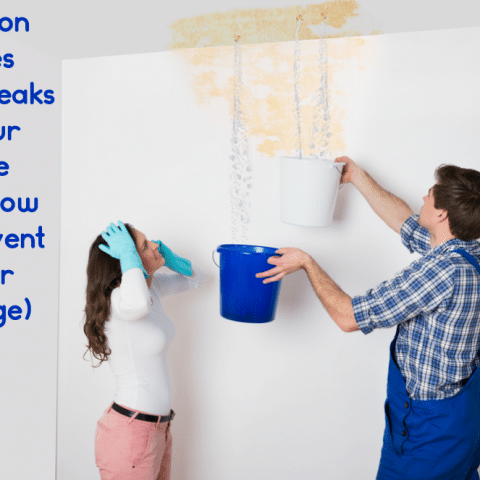Overview To Water Leakage Detection In Your Home
Overview To Water Leakage Detection In Your Home
Blog Article
The content in the next paragraphs about Hacks to detect leaks is truly enlightening. You should check this stuff out.

Early detection of leaking water lines can reduce a possible catastrophe. Some little water leaks may not be visible.
1. Take A Look At the Water Meter
Checking it is a proven way that assists you find leaks. If it relocates, that suggests a fast-moving leak. This indicates you might have a slow leak that could even be below ground.
2. Examine Water Intake
Assess your water bills and track your water intake. As the one paying it, you must see if there are any type of inconsistencies. If you detect sudden changes, in spite of your consumption coinciding, it means that you have leaks in your plumbing system. Remember, your water expense should fall under the same range each month. A sudden spike in your costs shows a fast-moving leakage.
A consistent boost every month, even with the very same behaviors, reveals you have a slow-moving leakage that's also slowly escalating. Call a plumber to thoroughly check your residential property, particularly if you feel a cozy area on your floor with piping underneath.
3. Do a Food Coloring Examination
When it comes to water consumption, 30% comes from bathrooms. If the shade in some way infiltrates your dish throughout that time without flushing, there's a leakage in between the storage tank and also bowl.
4. Asses Outside Lines
Do not forget to check your exterior water lines also. Must water leak out of the connection, you have a loosened rubber gasket. One little leakage can lose lots of water and increase your water bill.
5. Analyze the scenario as well as evaluate
House owners ought to make it a routine to check under the sink counters and also inside closets for any bad odor or mold and mildew development. These two red flags suggest a leakage so punctual attention is required. Doing routine inspections, even bi-annually, can conserve you from a significant trouble.
If you recognize your home is already old, keep a careful eye on your heating units, pipes, pipelines etc. Look for stainings as well as damaging as most pipes and appliances have a life span. They will additionally normally degrade as a result of damage. If you suspect dripping water lines in your plumbing system, don't wait on it to escalate. Call a specialist plumber right away so you do not wind up with an awful mess in your home.
Early discovery of leaking water lines can alleviate a potential calamity. Some tiny water leakages may not be noticeable. Checking it is a proven method that helps you discover leaks. One tiny leakage can lose lots of water as well as spike your water bill.
If you suspect dripping water lines in your plumbing system, do not wait for it to escalate.
How to Know If Your Home Has a Hidden Leak
Water Meter Reveals Inexplicable Water Usage
If you’d like to test whether or not there’s a leak somewhere in your home, you can do this using your water meter. Here is how to conduct the test:
Don’t use any water in your home for at least 30 minutes; this also means not turning on faucets or water-using appliances.
Go outside, and check your water meter for activity.
If your water meter shows that there was activity, even though no one was using any water, this proves that there is a leak in your home.Visible Mold or Mildew Growth
Leaks behind walls create moist, dark environments that allow mold and mildew to grow and thrive. Eventually, you might see mold growth forming on the wall closest to a hidden leak.
If mold is growing in an area that receives a high amount of moisture, such as a bathroom, it may simply be an indication that better ventilation is needed. However, if you see mold growth on a wall or the ceiling in an area where you would not expect, you probably have a hidden leak.
Musty, Mildew Odor
Sometimes you might not be able to see the mold or mildew that is growing as a result of a leak. However, the smell can give the problem away just as easily. If you catch a whiff of something musty, there’s a good chance that old water is collecting somewhere in your home that you can’t see.
Stained/Warped Walls, Ceilings, or Floors
When your home soaks up water, a variety of red flags can become visible, including ceiling stains, bubbling drywall, warped walls, and sagging floors. While these issues can be caused by excess humidity, they can also be signs that a pipe or plumbing connection has started leaking behind your walls.
Inexplicably High Water Bill
After a while, you get a general sense for what your water bill should be. If you own a pool or sprinkler system, your bill will tend to be higher during summer. However, if you receive a water bill that seems especially high, and you can’t figure out what caused it, then you may have a hidden leak somewhere that’s increasing your bill.
https://www.plumbingjoint.com/blog/2019/july/how-to-know-if-your-home-has-a-hidden-leak/

I'm certainly very involved in Finding hidden leaks and I really hope you appreciated the post. So long as you liked our blog entry if you please don't forget to pass it around. We appreciate reading our article about Leaking water lines.
Report this page